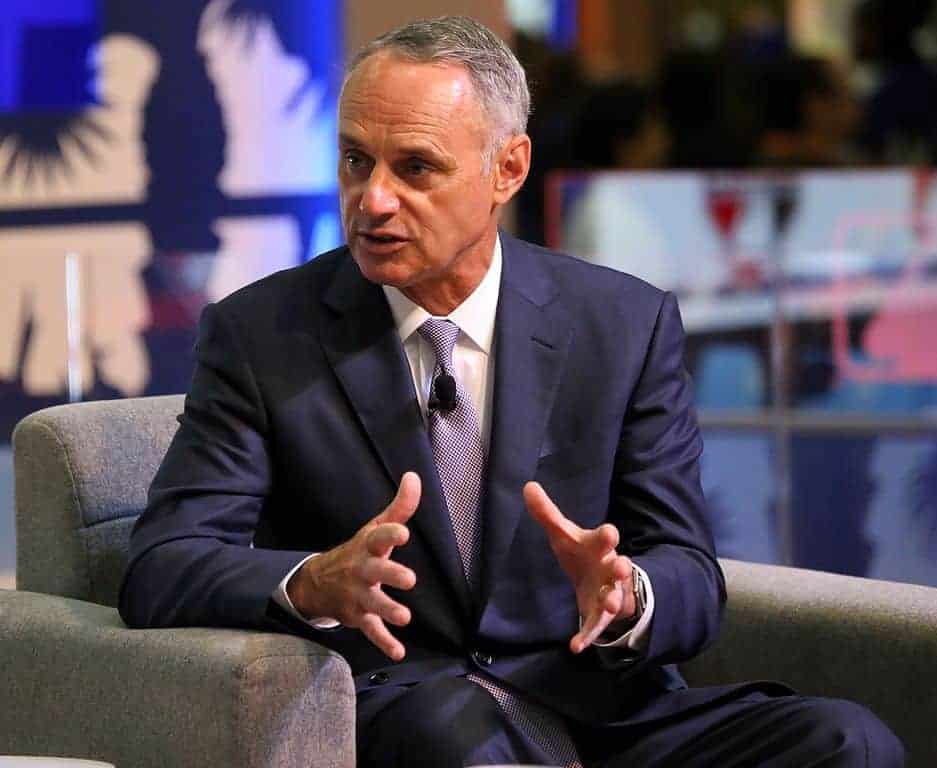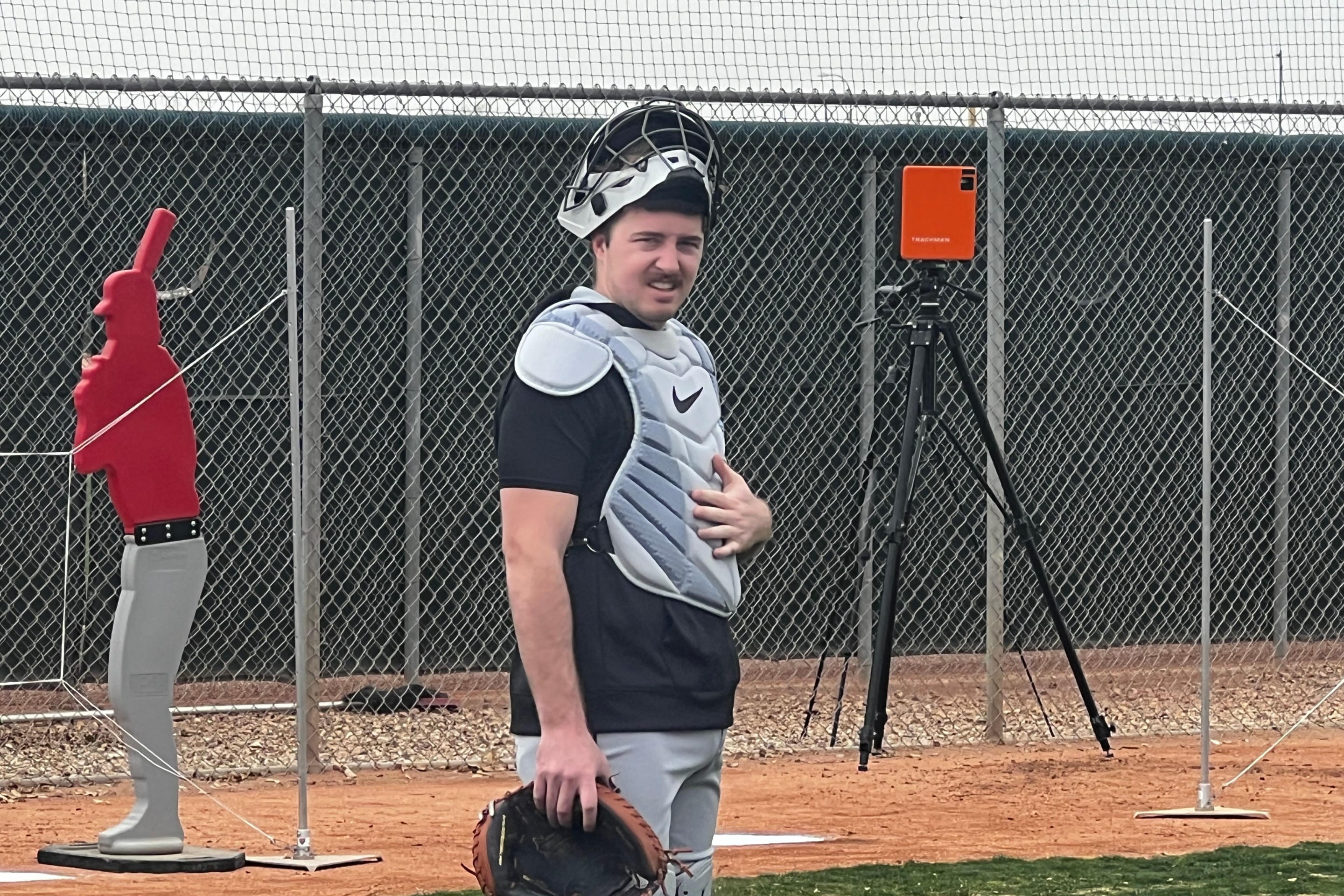Even before the pandemic stoppage slid in before the expiration of the collective bargaining agreement to threaten multiple seasons over a three-year window, Major League Baseball tended to be its own worst enemy. Pace of play, especially in the postseason. The cooling of the hot stove season. Rampant tanking. Invisibility of stars. Had the league been able to conduct business as usual, the reaction to the Houston Astros' sign-stealing would have been a persistent thorn in its side.
The numerous peacetime problems suggested there were some major flaws in the state of the sport just asking for a reckoning, and the owners seem to be stepping in it.
Originally, I figured the subject of this post would be the exchange between the MLB and MLBPA that took place mostly on Friday. In its latest proposal to the union, the league continued its pattern of offering a similar amount of money in different packages.
But this time, MLB Deputy Commissioner Dan Halem opened by accusing the MLBPA of dealing in bad faith.
“I must have misinterpreted your June 6th letter,” Halem tells Meyer. “I thought the letter reflected a willingness on the part of the Association to discuss in good faith the economics necessary for the Office of the Commissioner to waive its right under the March Agreement to resume the 2020 season only when there are, among other things, no restrictions on fan access. After reviewing the Association’s counterproposal, I stand corrected.”
When it comes to bad faith, the MLBPA could have simply countered with "he who smelt it dealt it," but the union countered by suggesting it has receipts that undercut the league's posturing:
It should not be forgotten however that even MLB admits that our March Agreement does not require players to agree to further pay cuts. Indeed, as Mr. Halem agreed in a May 18 letter to Tony Clark: ‘The Association is free to take the position that players are unwilling to accept further reductions.’ Pat Houlihan, MLB legal counsel, similarly acknowledged in his May 22 letter to the Players Association. ‘We agree with the Association that, under the Agreement, players are not required to accept less than their full prorated salary.’’
Though testy, that exchange still stayed within the bounds of the proposal/response/counterproposal format.
A later statement Saturday evening, in which the MLBPA called the league's bluff, did not.
The "new reports regarding MLB's national television rights" was the report of MLB's fresh billion-dollar deal with Turner for postseason games, which I imagine had Rob Manfred charging out of the bathroom with pants around his ankles demanding the New York Post to keep the story quiet.
Major League Baseball has tried to insinuate throughout the process that the players' right to prorated salary must be put back on the table in the event of no fans ...
... but Larry pointed out that "premised on the parties' mutual understanding" is a way to say that they forgot to put something important in the contract. And as Craig Calcaterra pointed out, the league hasn't treated players with that kind of respect when they've had an edge in the gray area.
In the past, I've urged fans to reconsider praising bad-faith dealings as "smart," since it mostly worsens the product and poisons the well for no clear long-term benefits. Alas, when players get outmaneuvered or outleveraged, they're told to stop complaining and negotiate better the next time around. But hey, this here is the bed the owners made, and the players are pressing their advantage with a simple, clear message: We want to play. Tell us when.
Bob Nightengale said that the league would not be coming up with another proposal, so now it's up to Manfred to determine whether he wants to play, and how many games. If he picks the lowest possible number and doesn't even get an expanded postseason out of it, it reads to me like a rather remarkable caving to the whims of cash-poor teams.
* * * * * * * * *
If there's any solace to be found, it's that all this conflict still might be moot, because other sports are showing that other world concerns remain very much in play.
The NBA was seemingly on track to open its playoffs under a bubble in Orlando on mid-July, which was the kind of development that made MLB's issues look uniquely self-inflicted. Instead, it just seems like the NBA took a lot longer to encounter the "human zoo" objections to the bubble, which was something MLB players fought early.
Maybe the NBA could have gotten away with it before the protests to police brutality circled the globe, but putting a largely African-American league in isolation as a "distraction" to world events isn't sitting well with a sizable portion of the players.
Meanwhile, the University of Houston had to stop voluntary workouts after six of its athletes tested positive for coronavirus. Texas set state records for COVID-19 hospitalizations on Friday and Saturday, and that's the state that intends to allow 20,000 fans in its stadiums if and when baseball resumes.
Major League Baseball might have squandered an opportunity to regain its former share of the nation's sports attention, but the coronavirus remains a formidable obstacle. There's a certain strength in numbers now, in that if the pandemic makes the credible completion of a season impossible, history won't judge Major League Baseball as the only league that was dumb enough to try it.
(Photo by Arturo Pardavila III)






